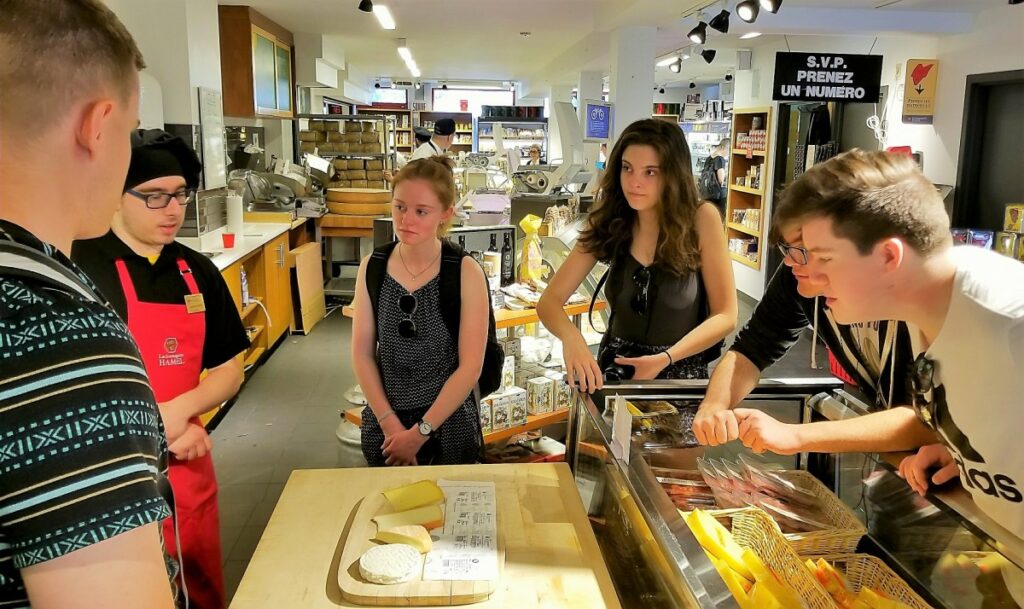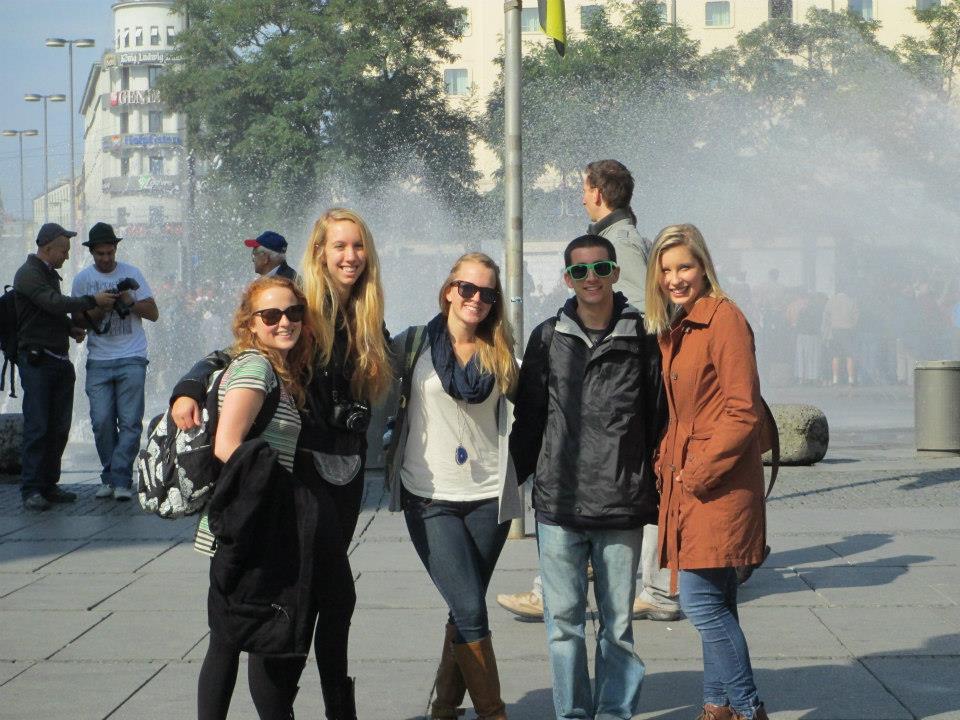Choosing a study abroad destination can be difficult- there are so many factors to consider! Programs differ in their curriculum, location, price, culture, size, and more. Champlain offers a variety of programs so you really can study anywhere in the world. Lengths of programs vary. Students can go on service trips, participate in travel courses on school breaks, complete internships abroad, or have semester-long experiences. With so many programs offered, finding the right fit can be a process. After careful consideration with the OIE, I found that spending the summer in Shanghai, the fall in Dublin, and the spring semester at AUT would be the best fit for me. I learned a few things about the process of choosing a program along the way.
Program Curriculum

Classes are the most important part of studying abroad, after all, we’re all here to earn a degree! Picking a program with classes that will count toward program requirements is best. Champlain Dublin and Montreal have specific Champlain classes for students. I took my COR310 and COR320 classes in Dublin because they are only offered there in the fall. This opened up my spring semester to study abroad again. Studying through a third-party or exchange partner is different course-wise. Students must have their courses pre-approved by a Champlain faculty advisor to ensure the course aboard is equivalent to a Champlain course. This semester at AUT I’m taking two COR330 courses. One of the courses is about New Zealand history, while the other, TIKA500, is about Maori culture. I’m also taking Travel and Tourism Marketing to fulfill my International Marketing course requirement and Managing Data for Business Analytics for my Data Science minor elective, all while being on track to graduate.
Third-Party vs. Exchange Programs

If students choose a semester program other than Dublin and Montreal, it is essential to clarify the difference between third-party and exchange programs. There is a financial difference between the two. With third-party programs, students pay the third-party program rate, which is usually less expensive than Champlain tuition. Additionally, they must pay a $750 fee to Champlain to hold their place in the class when participating in the third-party program. On the other hand, with exchange programs, students pay their regular Champlain tuition and keep their Champlain scholarships. The exchange program includes locations in Morocco, the Netherlands, New Zealand, and Scotland. Champlain hosts students from these universities on the Burlington campus. It is possible to meet students from a future-study abroad destination before leaving for your semester, guaranteeing a familiar face on campus. Another difference is that exchange programs tend to be more independent, while third-party programs provide more of a support system. While working with the third-party program CAPA in Shanghai, I could contact a staff member 24/7. Now I’m on exchange at AUT, and while the staff is helpful, I’m not paying for the same quality of service. Exchange and third-party programs are similar but do have slight differences.
Location Matters

For many students, location is a huge factor in their decision-making. I chose to study in Dublin because of the ease of traveling to other European countries. I enjoyed traveling in Europe so much I nearly stayed another semester but opted to study in New Zealand because I wanted to see more nature. When I asked my roommates, why they chose New Zealand, they answered because it’s far away. They wanted to study somewhere they couldn’t normally vacation for a week. Everyone’s reasons are different. My advice to prospective study abroad students is to consider what’s important to them. Do you care about traveling to other countries? Would you prefer a city or a rural location? What is the cost of living? How do you plan on spending your weekends? These are all relevant factors to consider.
Cultural Differences

Along with location, culture is a major factor to consider. Language, food, religion, social standards, and more vary among locations. Interning in Shanghai was a huge cultural difference for me. Nearly everything you could think of was different from back home in the Northeast. Ordering food or simply asking a question at the hotel front desk were just a few daily obstacles. However, the amount of personal growth I gained from that experience is astronomical. You get out of your study abroad experience what you put into it- so don’t be afraid of a challenge. Embrace it!